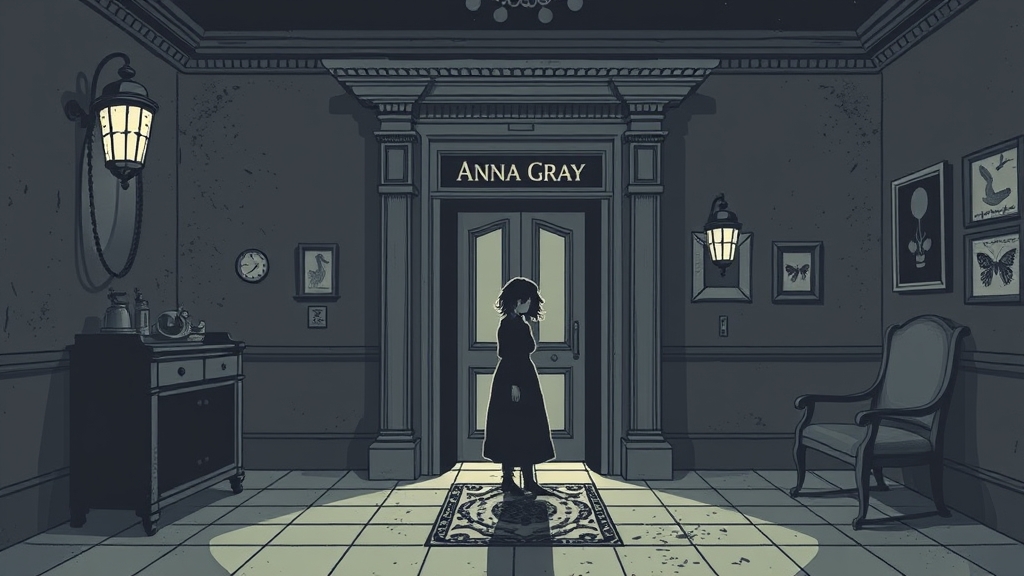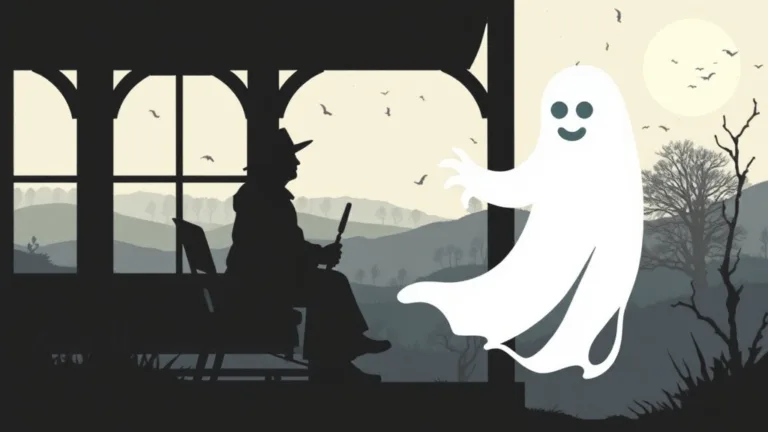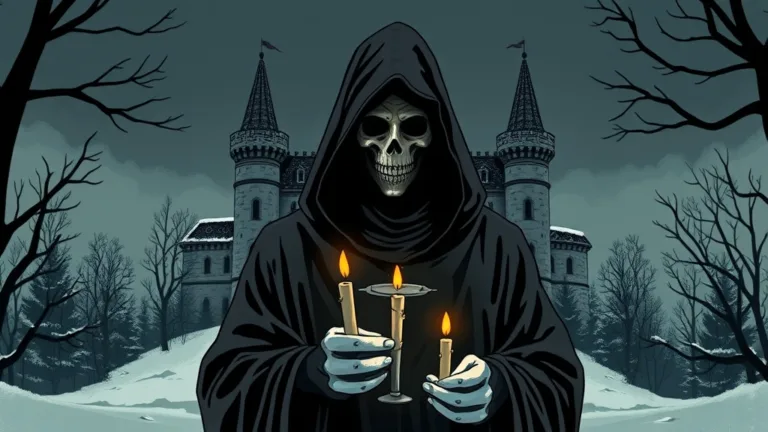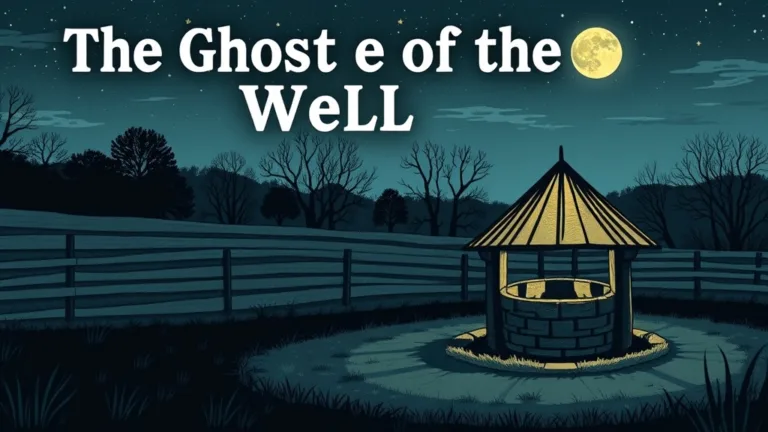One summer night in nineteen-oh-four’s glow,
Anna Gray lay restless, soft and low.
In a second-floor room at a B & B,
her stomach churned from a mince-pie spree.
The air was heavy, stale as old tin,
no breeze to soothe the ache within.
She tossed the quilt, she heaved a sigh,
and at the sash she opened the sky.
Fresh night slipped in on a silver thread,
a whisper cool across her head.
Her tummy eased, fatigue took hold —
she climbed beneath the blankets, warm and bold.
Soon slumber came on tiptoe feet,
and Anna dreamed in a hush so sweet.
But hours later she woke with a start,
a puzzled flutter inside her heart.
For though the room seemed neat and small,
a prickle told her: something’s wrong with all.
She scanned the corners, the clock, the sill —
and froze as a figure sat stock-still.
A man on the ledge, with eyes like coal,
staring straight at her, bare of soul.
Her mind raced wild — a thief? a fiend?
She leapt up quick, her courage fiend.
He did not move when she hurled her cry,
but tilted back — then slipped and fly.
He fell through moonlight, vanished from view;
Anna gasped, “Is he dead? What should I do?”
She peered below, the pavement bare,
no shadow fallen from the midnight air.
A dark car waited under the lamp’s white glare,
and someone inside looked up to where
she stood framed by glass, now icy with fear —
the same man’s face turned and drew near.
He raised his hand, a beckoning leer,
“Come down,” he said — the voice unclear.
Anna recoiled; the car was a hearse,
a carriage pale with a hush and curse.
She slammed the window, heart in shock,
and watched the street — but found no rock.
The carriage and driver had slipped away,
as if midnight swallowed them like prey.
She watched until her breath ran thin,
then crawled back slow and let sleep in.
Dawn tipped its hat with a buttery light;
the room unframed the terrors of night.
She dressed and laughed at her trembling chest,
deciding by day she’d be at her best.
To a new department store she strolled with cheer,
four floors of wonders spread out clear.
She wandered and bought, and lost the dread,
the hearse, the window, the fright in her head.
At last on the fourth floor she chose to leave,
and to the elevator she did quietly weave.
The car came down with a cheerful chime,
a crowd inside — she’d wait next time.
But a voice barked out, a curt demand:
“Get in now, miss — don’t make a stand.”
The head that popped from the little hatch
was the same strange face from that midnight match.
Anna’s blood went cold, her lips went numb;
she shook her head: “No — I’ll wait for the one to come.”
They shrugged, the doors shut, the car slipped away,
and then from the shaft came a terrible bray.
Metal screamed and the cables failed;
a plunging car, the ropes unrailed.
A crunch, a cry — then silence fell;
two lives were taken in that iron shell.
Anna stood frozen, breath like frost,
her near-escape counted what could have been lost.
Was he a phantom, a trick of the night?
A stalker in hiding? A murderer’s spite?
Reports were printed, the story spread wide,
Anna’s name inked in headline tide.
They asked her what happened, how fear had fled —
and so the tale of Anna and the hearse was read.
We never learned all the truth that night:
if he worked the lift or simply took flight.
Some things remain like shadows on glass —
half-said, half-remembered, fading fast.
Yet Anna woke to daylight’s safe, warm rim,
and carried home a memory, jagged and dim.
A slice of terror wrapped in morning’s light —
a midnight visitor that vanished with the night.




